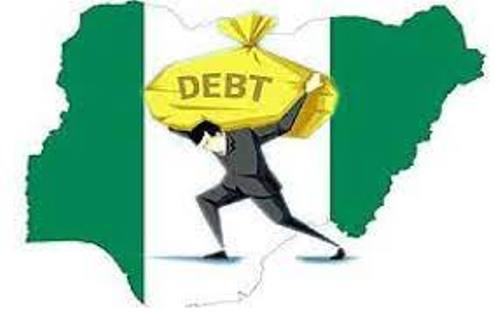
Nigeria’s total public debt reached N144.67 trillion ($94.23 billion) as of December 31, 2024, marking a substantial 48.58 percent increase from the N97.34 trillion ($108.23 billion) recorded at the end of December 2023, according to the Debt Management Office’s latest report. This represents a quarter-on-quarter rise of 1.65 percent from the N142.32 trillion ($88.89 billion) reported at the end of September 2024, indicating a continued upward trajectory in the nation’s debt burden.
The year-on-year analysis reveals a N47.32 trillion increase, primarily attributed to significant growth in both external and domestic borrowings. Nigeria’s external debt surged by 83.89 percent, from N38.22 trillion ($42.50 billion) in December 2023 to N70.29 trillion ($45.78 billion) in December 2024, driven by new external loans and the depreciating naira, which inflated the naira equivalent of dollar-denominated debt.
Domestic debt also rose by 25.77 percent, from N59.12 trillion ($65.73 billion) to N74.38 trillion ($48.44 billion). The Federal Government’s domestic debt component saw a significant 32.19 percent increase, reflecting the government’s reliance on local borrowing to finance budget deficits and infrastructure projects. Conversely, domestic debt owed by states and the Federal Capital Territory declined by 32.27 percent, indicating a more cautious approach to debt accumulation by some subnational entities.
On a quarter-on-quarter basis, the N2.35 trillion increase was influenced by both external and domestic debt. External debt rose by N1.4 trillion, while domestic debt increased slightly by 1.29 percent. The Federal Government’s domestic debt increased, while that of states and the FCT decreased.
As of December 2024, external debt constituted 48.59 percent of Nigeria’s total public debt, with domestic debt accounting for 51.41 percent. The rising external debt, particularly by the Federal Government, highlights a growing reliance on foreign loans.
The substantial increase in public debt has raised concerns among economic analysts regarding Nigeria’s fiscal stability. The sharp rise in external debt, coupled with the depreciating naira, could escalate debt servicing costs, placing additional strain on the nation’s financial resources.






